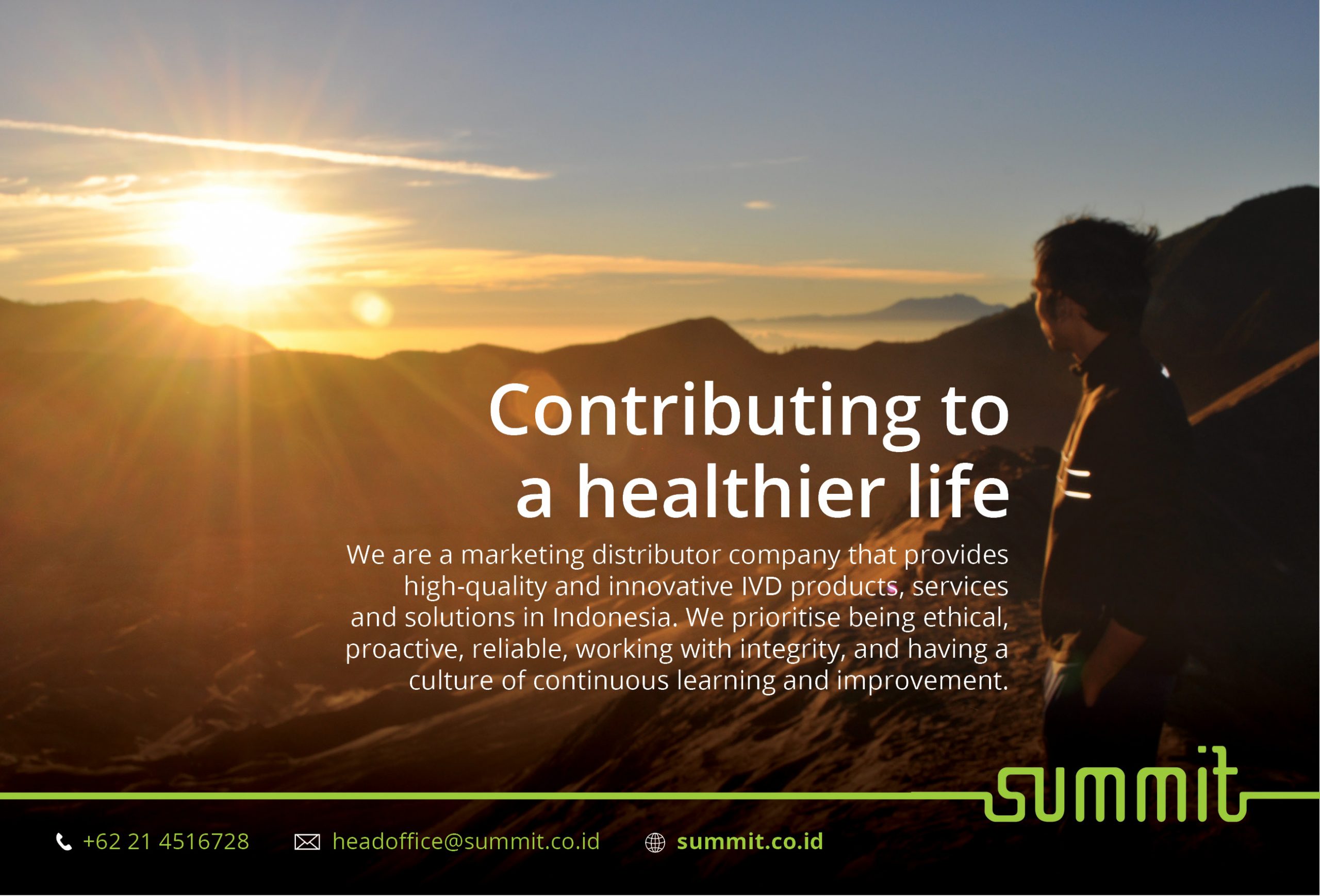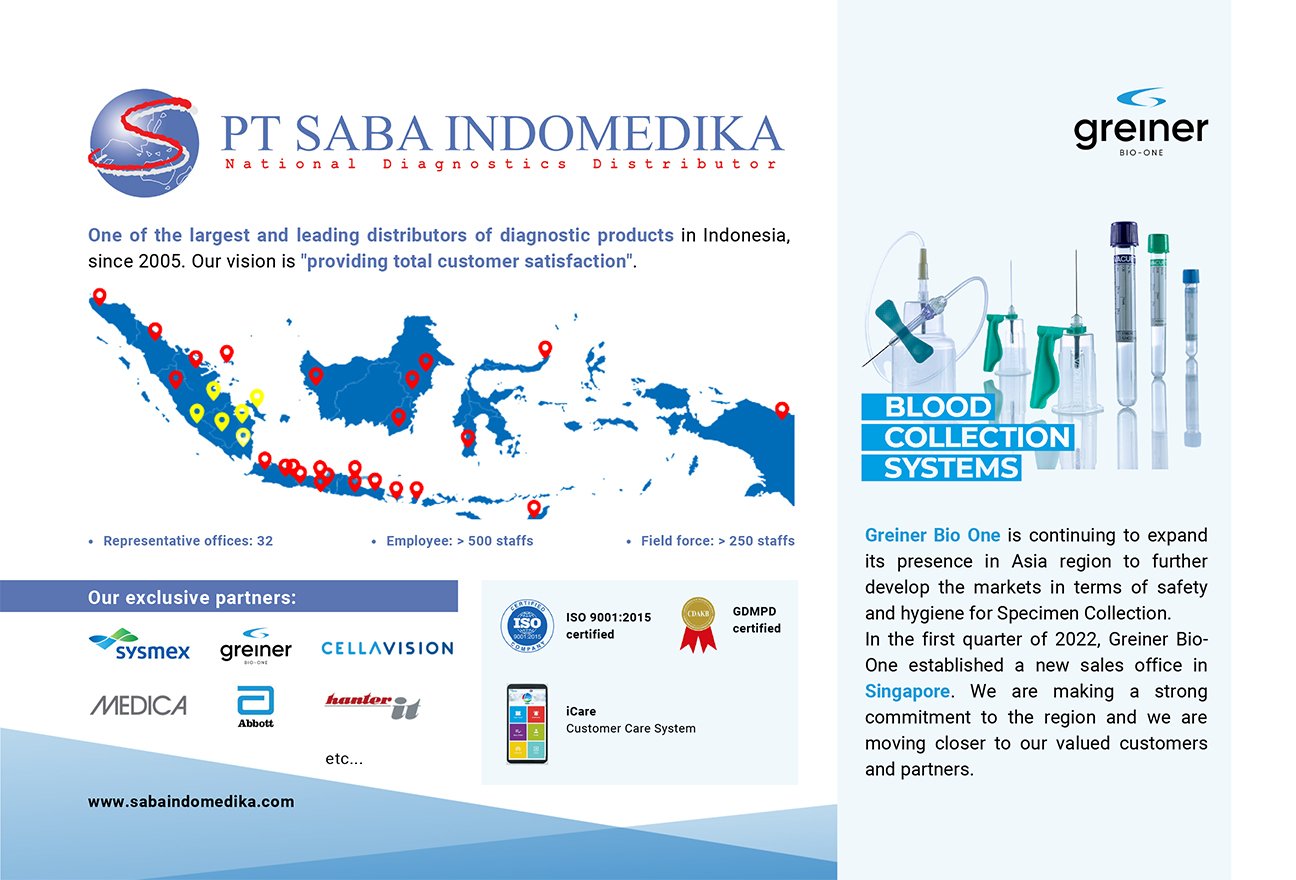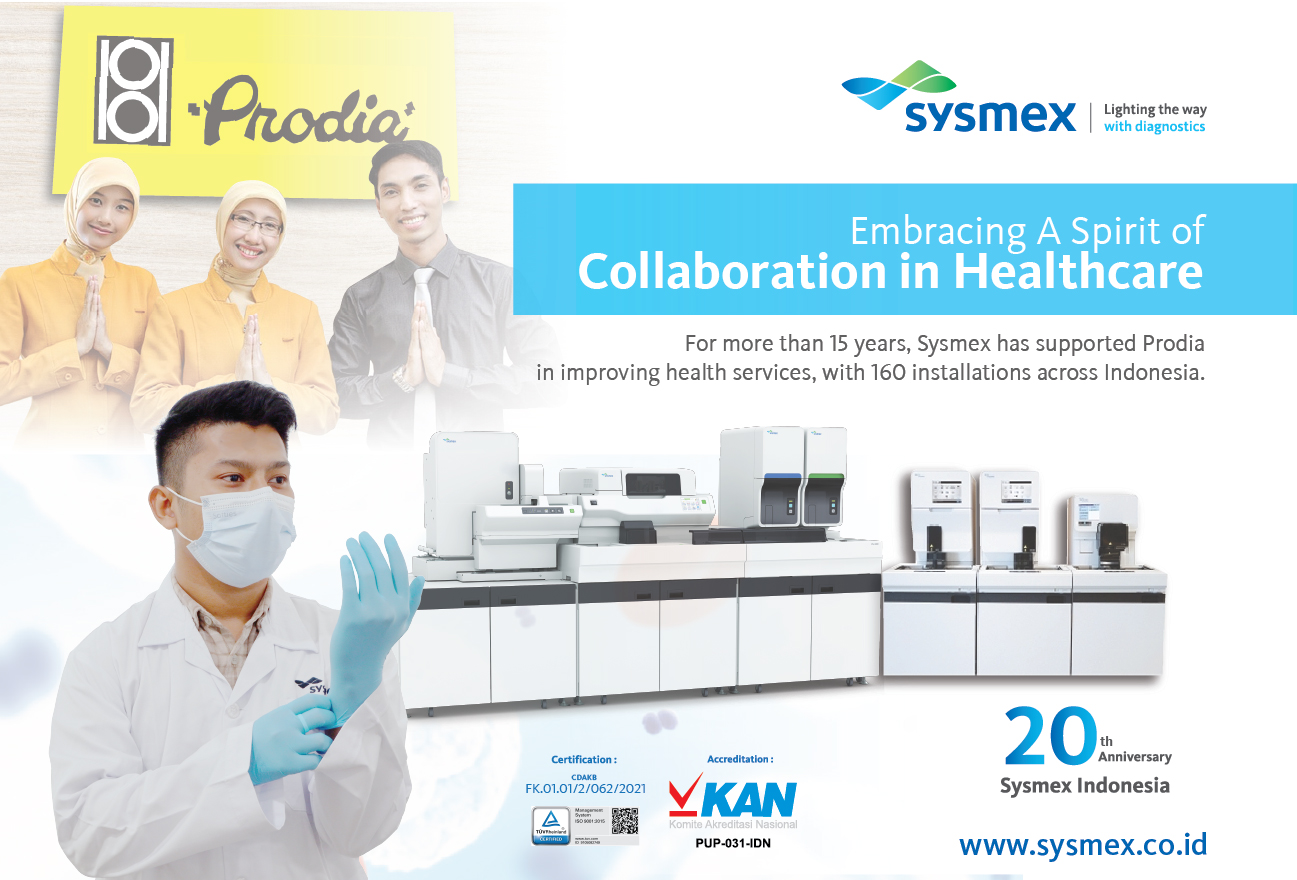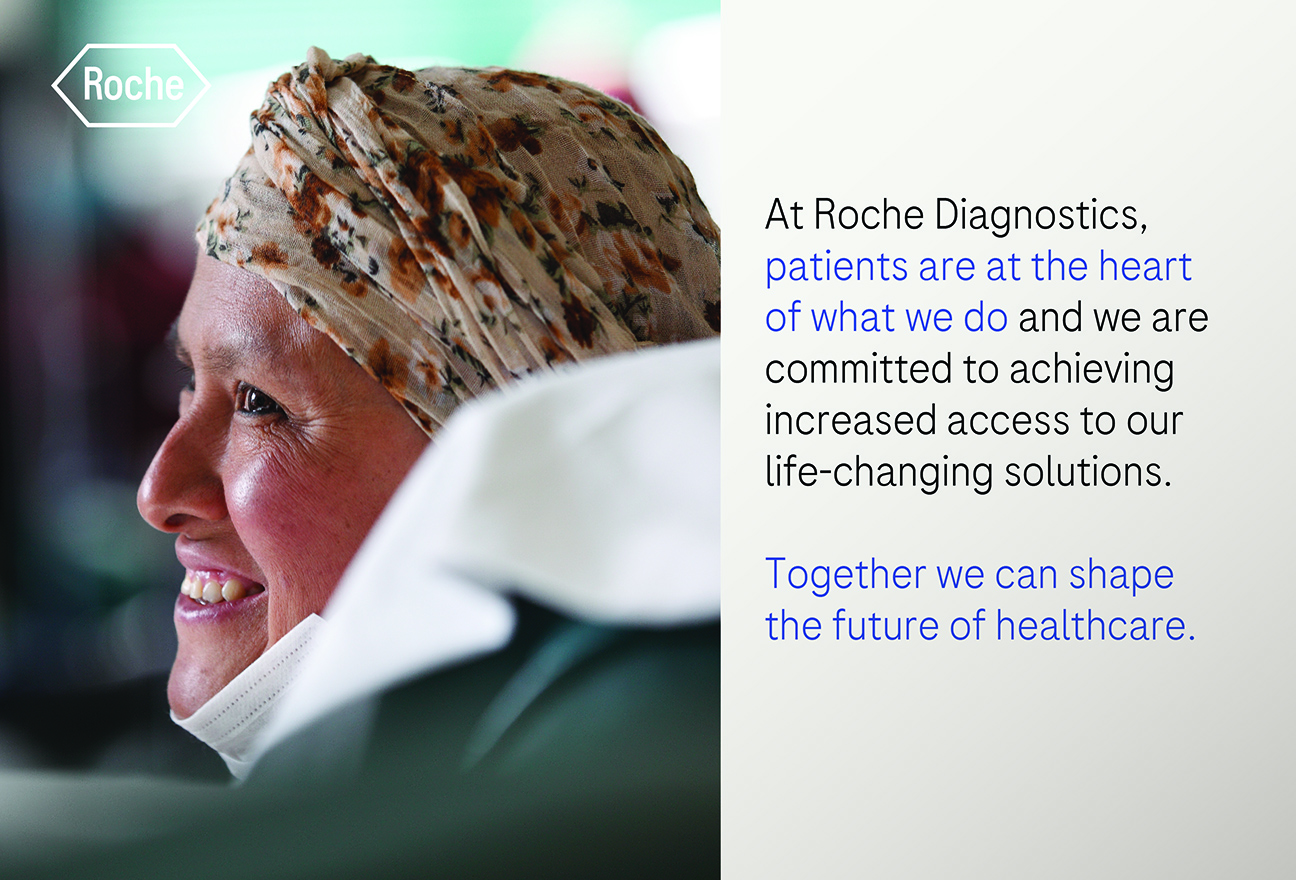More than 50 years ago, Andi Wijaya was working as a clinical biochemist at Atma Jaya University, in Indonesia’s capital Jakarta, when tragedy threatened to befall one of his colleagues several hundred kilometres away. The wife of Gunawan Prawiro Soeharto was experiencing complications with childbirth in a hospital in Solo, Central Java. Midwives were unable to deliver the baby because of a condition called placenta previa, where tissue blocks the birth passage. A surgeon had to perform an emergency Caesarean section to save the baby and the mother.
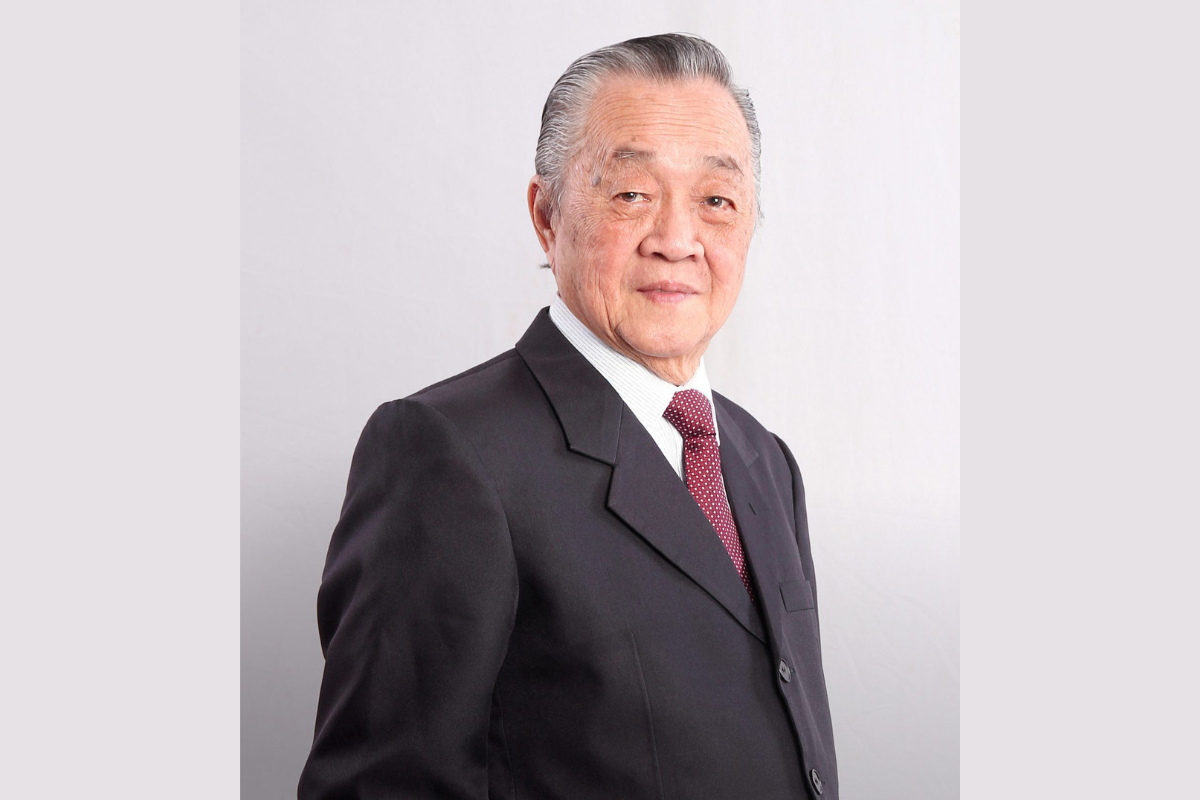
But there was another complication. Back in the early 1970s, Solo did not have its own blood bank, so the medics asked Gunawan to rally friends and family to donate blood for the procedure. Andi was among those who offered to do so.
It was lucky he did, because his involvement was the reason he identified and prevented a potentially deadly shortcoming at the hospital: its lab was unable to reliably test for different blood types.
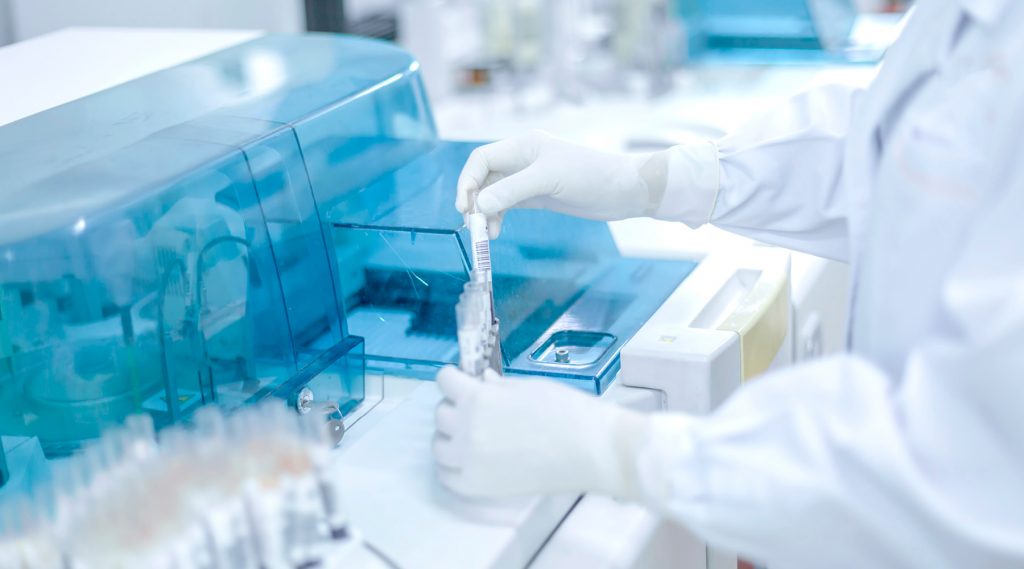
“I knew that my blood group was AB,” Andi recalls. “Gunawan’s wife’s blood group was O. But in the lab at the hospital, they tested mine and that of another friend, and they all came back as O. I told the obstetric gynaecologist: if you’re going to operate, you must check this again, because it will be dangerous if you use my blood; AB and O do not match.”
In the end, the operation was a success. In addition to a healthy baby boy, an idea for a business was born that day. The surgeon, working in a hospital with extremely limited resources and under-trained staff, told Andi that he should use his expertise in clinical biochemistry to help provide the population of Solo with better medical services.
Andi recounts: “This doctor said to me: ‘Why don’t you make a small lab in Solo? We only have the lab in the hospital, but you could make a private one, a good one.’”
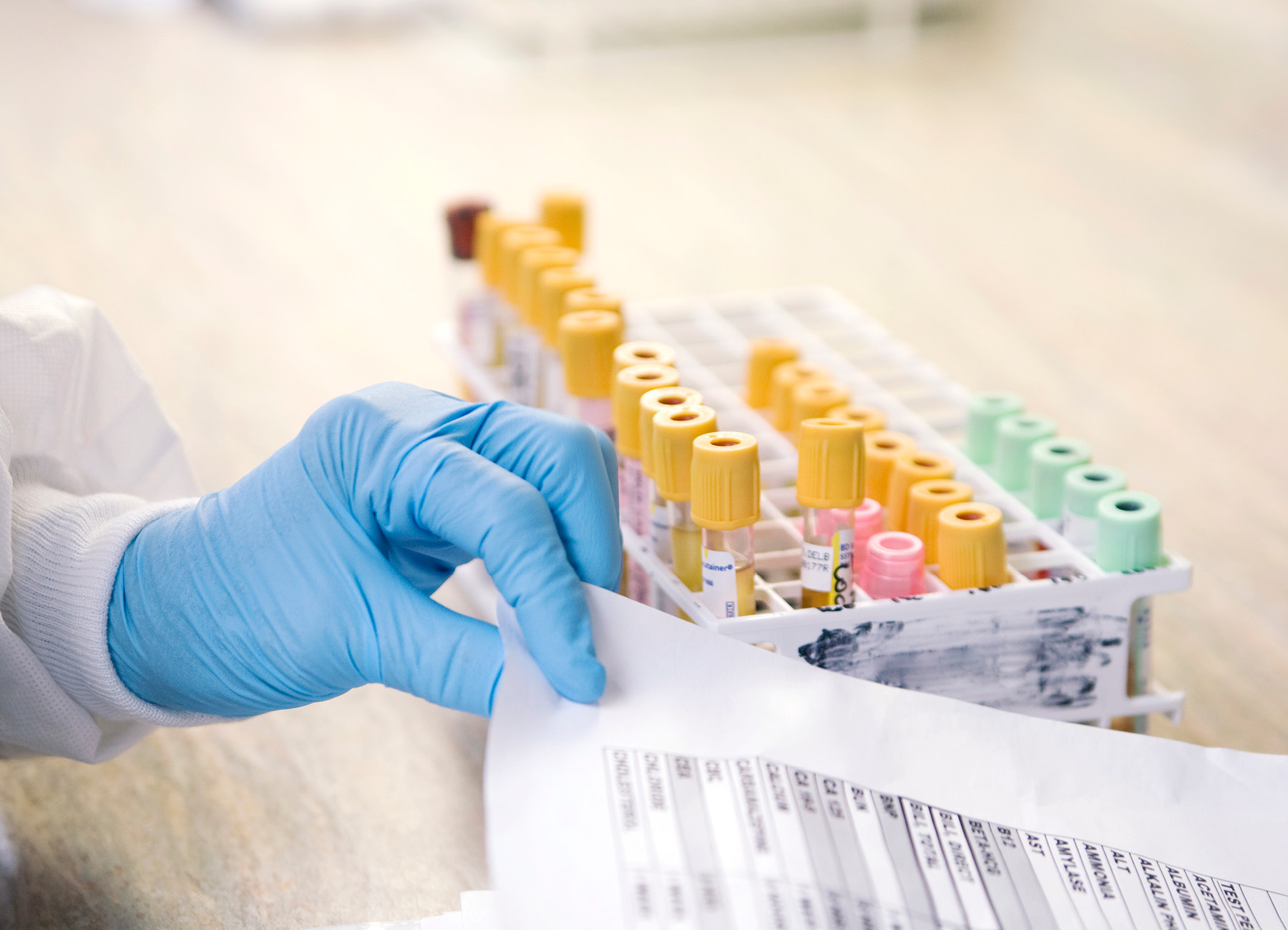
Since the beginning, because we started in response to the blood tests going wrong at that lab, quality has been our number-one concern.
Better diagnoses
Both Andi and Gunawan were keen on the idea, and they became Co-founders while still working at the university. Like hospital labs, though, the major challenge they faced was a lack of resources.
“The salaries we were able to offer were too small,” Andi says. “We had just four people to start with, and we paid rent on a small room, about four-and-a-half metres wide.”
The lab was equipped with second-hand instruments from the Atma Jaya University, which was closing one of its own labs because of lack of money. “They told us to take whatever instruments we wanted, so I took a small mononuclear microscope, a very old one,” he says.
It has been a long journey since then. Today, Prodia Labs has 38 per cent of the entire Indonesian market, and its headquarters is now based at the multistorey Prodia Tower in Solo. On the fifth floor of the building is an exact replica of the first lab Andi opened with Gunawan.
“The lab still has all the original instruments, the table, the furniture from when we first opened this lab,” Andi says.
“Ever since our founding, we’ve been growing and growing,” he adds. “Now we have more than 260 labs across Indonesia, from Sapan to West New Guinea.”
That network spans 127 cities and 34 provinces across the country.
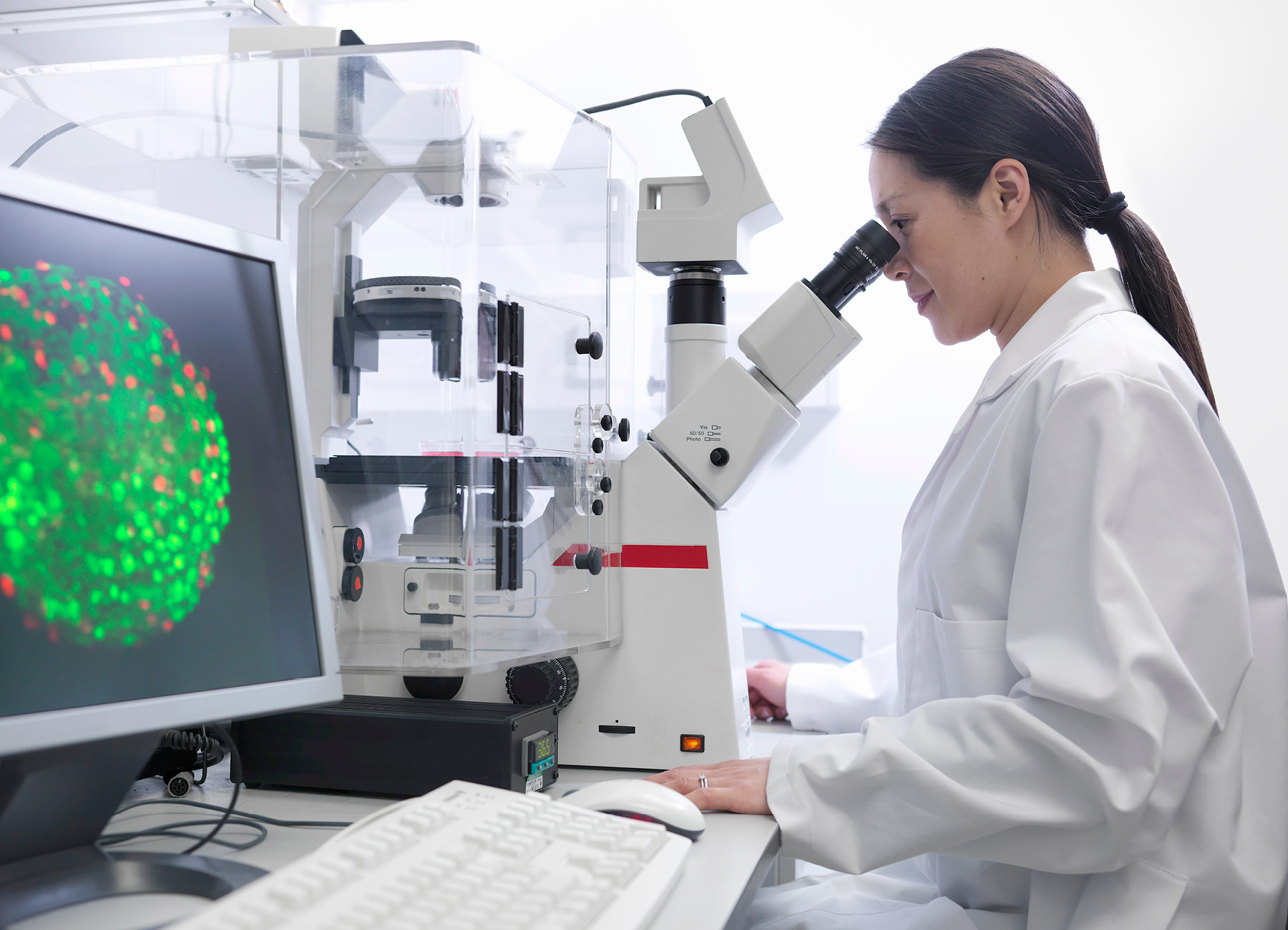
Our lab for stem cell treatments is pioneering. It’s the most advanced modern lab for stem cell therapy in Indonesia.
Prodia is not only the biggest lab operator in Indonesia, but also the most trusted – a testament to the fact that it has stayed true to its roots. “Since the beginning, because we started in response to the blood tests going wrong at that lab, quality has been our number-one concern,” Andi says. “Our mission is always for better diagnoses.”
In 2012, Prodia became the only laboratory in the country to receive accreditation from the College of American Pathologists – a sign that its test results are equal in quality to those obtained from a range of respected international laboratories.
Professional and scientific
Andi is now 86 years old, and in addition to being Chair of Prodia Group, the entity that owns Prodia Labs and five other businesses, he also still works at the Atma Jaya University, where he gives lectures to PhD students and mentors them through their research.
It is via this deep-rooted connection to the academic world that Andi helps Prodia to access high-level talent for its labs, its research and development (R&D) team and other departments. Prodia has partnerships with dozens of well-known universities across Indonesia and has given out numerous scholarships to PhD candidates and Master’s students.
“We have been working hard to get universities onboard, and we have agreements with about 30 of them. We now have 38 PhD candidates and 67 Master’s degree students, all in biomedical science,” Andi says. “So we have a good team. We call it the High Performing Team. They’re professional and scientific.”
Prodia Labs’ 11-strong R&D team is made up solely of PhD candidates. “They’re there to research how to disrupt things, looking at everything that Prodia does to see where we can make the most impact with new innovations,” he says.
We are the first to be doing genomic testing for precision medicine, and we have made great strides into accelerating digital health.
The other components of Prodia Group are a company that specialises in diagnostic tools, another that does manufacturing for laboratories, one that conducts clinical trials for big pharma, and one that focuses on stem cell treatments.
“Our lab for stem cell treatments is pioneering,” Andi says. “It’s the most advanced modern lab for stem cell therapy in Indonesia.”
There is also a unit that specialises in occupational health, with labs that offer biological monitoring for food health and testing capabilities for industrial toxins.

Prodia’s Award-Winning Digital Transformation
At the forefront of Prodia’s digital transformation is the Prodia Mobile App. Its Home Service function has helped drive healthy financial results over the past year. In July, the company recorded a 188 per cent increase in people downloading the app, while revenues from the app went up by 245 per cent, and orders via the app went up by 244 per cent.
As part of its efforts to reach more people online, Prodia has launched a virtual personal assistant called Tanya Prodia, which can be accessed by anyone via multiple channels.
The company’s digital transformation was recently recognised with a 2022 Top Digital Company Award from Marketing Magazine, the third time the company has received the accolade.
Prodia also won the 2022 Service Quality Awards in the Clinical Laboratory category, a recognition of its highly responsive, personal and professional interactions with customers of its labs.
The company was also awarded the Indonesia Digital Popular Brand Award 2022.
Accelerating digital health
To ensure that the company continues to drive innovation and remain agile in a fast-changing market, Andi set up the Prodia Scientific Advisory Board, a panel of 10 professors whose expertise covers a range of different medical fields.
“We have an endocrinologist, we have an epidemiologist, we have genomic, genetic and epigenetic specialists,” Andi says. “We also have pharmacology and a neurologist.”
The panel meets once every month to discuss the future direction Prodia should take based on the latest advances in their respective fields, and on where they feel the company can have the greatest impact. Once they have made a decision at a monthly meeting, they pass their advice to the R&D team, who set about researching potential ways to put it into action.
This forward-looking model is one reason Prodia has remained far out in front of much of its competition in Indonesia.
This generation adapts fast to new changes, and now they’ve been using labs for years and are very digitally savvy, so they are part of a thriving digital ecosystem. This creates a very big opportunity for us.
“We are the first to be doing genomic testing for precision medicine, and we have made great strides into accelerating digital health,” Andi says. That acceleration has also been driven by the COVID-19 pandemic.
“We have the Prodia Mobile App now, meaning you have access to Prodia’s services in your home,” Andi says. “We have a team of thousands doing tests at people’s homes, and we are preparing more projects to expand and enrich the digital ecosystem.”
New generation
Among the key challenges Prodia faces is navigating the global economic recovery from the COVID-19 pandemic, while also dealing with inflation caused by the war in Ukraine.
As the company addresses these challenges, a key focus for improvement within the company will be to further sharpen its focus on digital medicine. In this sense, the COVID-19 crisis has created a shift in thinking among younger generations that Andi believes can be used to help capture a new segment of the market.
“Before this pandemic, the youngest generation hardly knew what a laboratory test was,” Andi explains. “It was mostly only older people with non-communicable diseases like diabetes who needed these services. But now because of PCR and rapid antigen tests, everybody knows about the labs.”
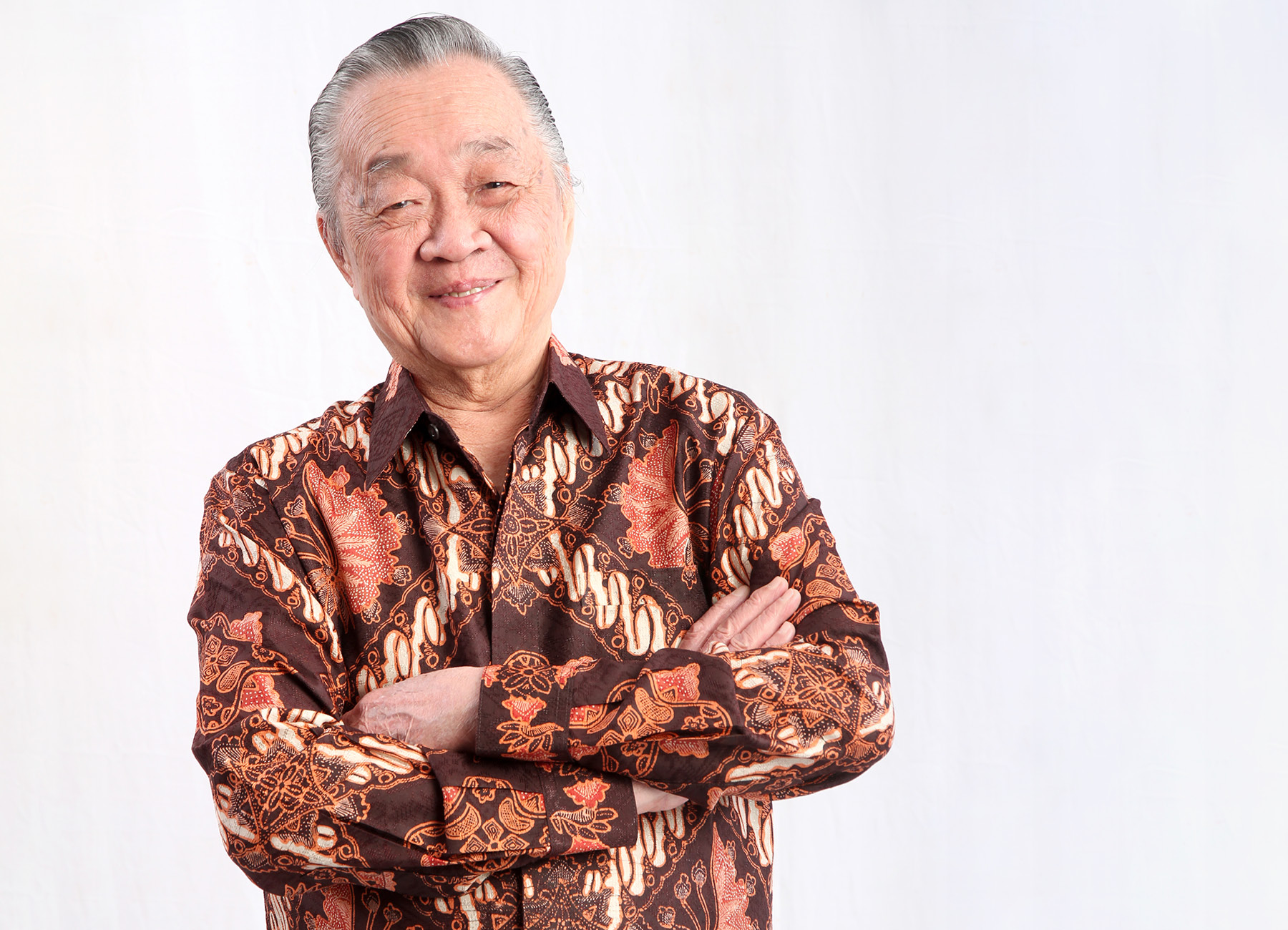
If we are going to be doing business, then we must always be aware of whatever trends are happening at the global scale, as well as the local trends that affect us directly.
In a digital era, this creates an opportunity for Prodia to use online tools to reach younger people whose health may benefit from lab testing but who may not have been aware of it.
“This generation adapts fast to new changes, and now they’ve been using labs for years and are very digitally savvy, so they are part of a thriving digital ecosystem. This creates a very big opportunity for us,” Andi says. “It’s a big segment.”
Adapt every time
This pivot towards younger online generations is one way Prodia remains agile. Even after 50 years of expansion, with a founding member as Chair, the company’s leadership knows it must constantly adapt in order to survive and thrive.
“If we are going to be doing business, then we must always be aware of whatever trends are happening at the global scale, as well as the local trends that affect us directly. We have to always keep in mind the threats that are there and the changes to our environment. We have to always be ready to change in a new environment,” Andi says.
“With the pandemic,” he adds, “it was the fact that we quickly shifted to a point where everything you needed, you had to be able to order quickly and easily online. So healthcare must also go in that direction. We must prepare and we must adapt every time.”
In order to stay nimble and anticipate necessary pivots, the leadership meets with the R&D team every three months to plan out where the company should be focusing its attention for the next six months to a year. This means the company is always reassessing and updating its future plans to allow for any new changes in the business and health landscapes.
“This is how we can make sure we excel – we make regular suggestions to ensure we are always trying to do better,” Andi says. “Actually, it’s the most important thing. We are always one step ahead.”
Sharing the rewards
Prodia’s ownership structure is geared towards helping every member of the team feel invested in keeping the company nimble and healthy. Every person who joins the firm is given shares.
“So everybody owns Prodia,” Andi says.
“In Indonesia, we have a saying that translates roughly to English as: ‘We must share all the luck, all the profit with others. It is not just for myself,’” he says. “You can’t do things just for yourself. It has to be for the whole community. We must work together with everyone throughout Indonesia.”
That includes reaching out to customers, who include both medical professionals and patients, to ensure they have the latest information about diagnostic tools and advances in medicine that may be relevant to either their fields of expertise or the health issue they are experiencing.
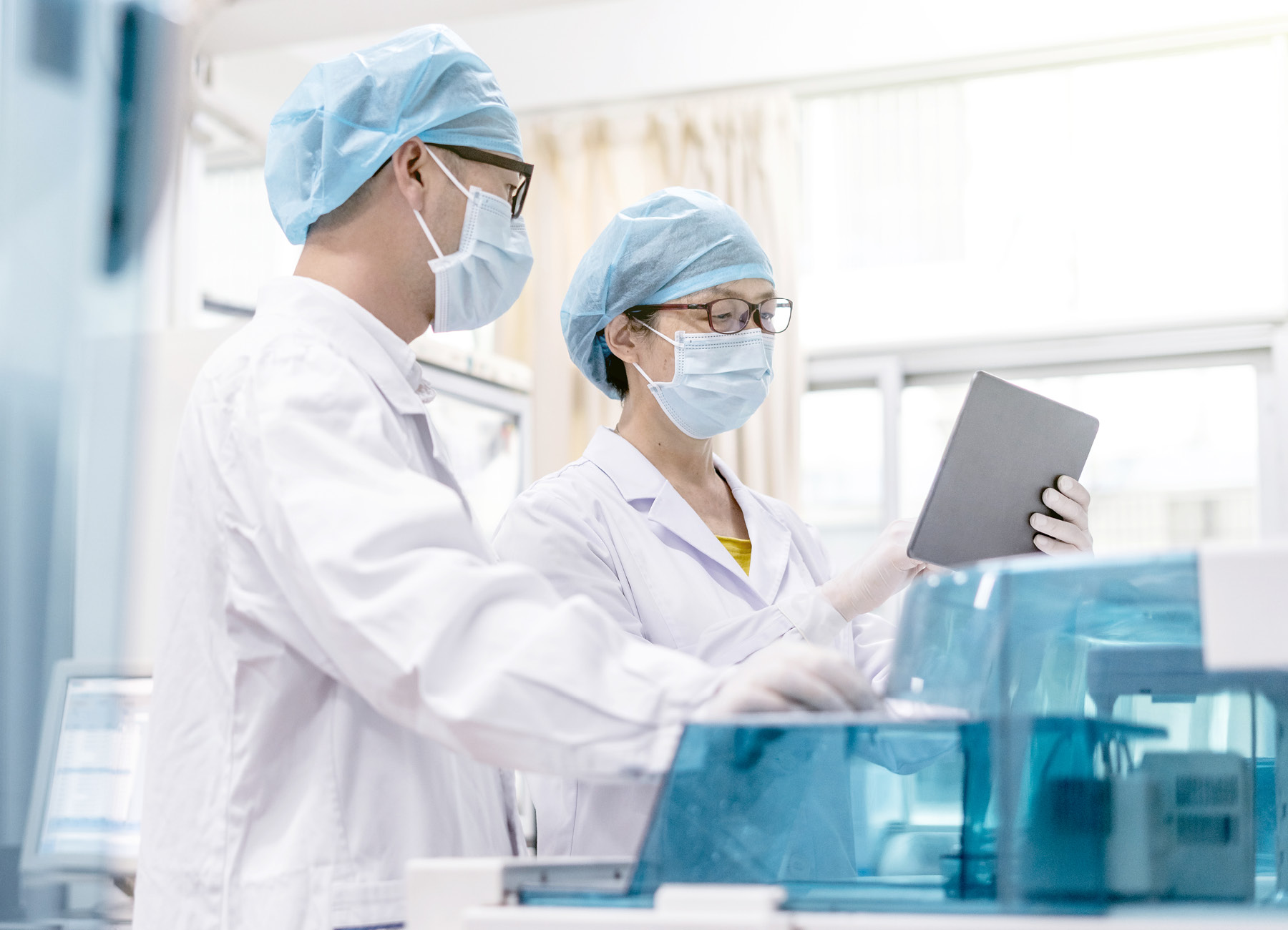
Our mission is always for better diagnoses.
“Some patients don’t have the most up-to-date information about the kind of care they could be receiving, and some doctors aren’t offering the latest diagnostic tools,” Andi explains. “So we hold small group discussions or use other channels to make sure we are always educating the customer.”
One example of that drive to reach customers is the company’s Be Healthy First campaign, which encourages the public to take a holistic approach to their health and think deeply about creating the conditions necessary to give them the best chance of living a long, healthy life.
“We use this campaign to teach people about healthy diets, exercise, everything. And we explain how genetic testing can help people tailor their lifestyle and diet to better suit their health,” Andi says.
Working two high-pressure jobs at the age of 86, Andi is a shining example of the benefits of leading a healthy lifestyle – and he wants the same for everyone else.
summit
PT Saba Indomedika
Sysmex
Roche

